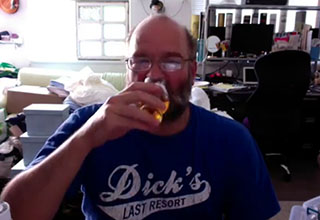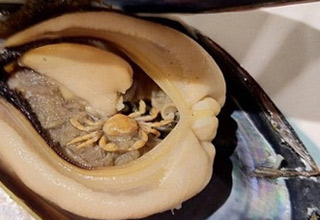To Americans
-To all the Americans asking about England's government and how it works:
- Summary
England’s government is called a Parliamentary Monarchy. The monarch for England is Queen Elizabeth II. The monarch, also known as the Crown, is the head of state in England. It serves as the head of the judiciary, commander in chief of the armed forces, supreme governor of the Church of England, and Church of Scotland, and summons and dismisses Parliament and ministers of the cabinet. In theory the crown appoints judges, military officials, diplomats, and archbishops as well as gives honors and awards, such as the knighthoods and peerages. In reality all this is done with the advise of the prime minister. The United States has no equivalent of the Crown. The head of state and commander in chief is the President, who is head of the executive branch of the United States.
- Chief Executive
The chief executive of England is the prime minister. He is the leader in the majority party in the Parliament. He presides over the cabinet and selects its members. With the cabinet, in the monarch’s name, the prime minister exercises all of the theoretical powers of the Crown. The prime minister must be an elected members of the House of Commons.
- Constitution
England’s constitution, unlike the United States, which is a single document, consists of multiple documents. The written part is comprised of the Magna Carta (1215 A.D.) signed by King John, which took away the king’s absolute power and gave some of it to the nobles. The Petition of Rights, passed by parliament in 1628, and the Bill of Rights of 1689. All laws passed by parliament are regarded as constitutional. The Crown gives its royal assent to legislation, but this has no more legal bearing.
- Cabinet
The cabinet has about 20 members; all are members of the House of Commons or House of Lords. Ministers of a specific department are called secretaries of state; if they do not have a specific department, they are called ministers without portfolio. They do specific tasks as needed. The prime minister is also the First Lord of the Treasury and Minister of Civil Service. The Lord Chancellor, although having executive duties is also head of the judiciary.
- Privy Council
The Privy Council, made up of about 450 members, is comprised of all current and former cabinet members and important public figures of England and the Commonwealth. The council advises the monarch. It has a large number of committees, each dealing with a specific task, such as dealing with universities, legal matters or outlying islands. The judicial committee is the most important because it is the highest court of appeals of some commonwealth nations, as well as some church related appeals and disciplinary committees of some professions.
- The Legislature: Parliament
The legislature, Parliament, like the United State’s legislative branch is composed of two houses. The Congress of the United States is made up of the Senate and the House of Representatives. In England Parliament is made up of the House of Commons and the House of Lords. Members are elected to five-year terms until dissolved by the Crown, on advice of the prime minister.
- House of Lords
The members of the House of Lords are not elected, but are appointed by the Crown. It is composed of lords temporal, that is, hereditary or life peers; lords spiritual, the archbishops and bishops of England; and the law lords, who assist in the judicial functions of the of the House of Lords. There are approximately 1100 members but only about one third attend daily. Except for financial bills, the House of Lords can introduce bills as well as make amendments to bills passed by the House of Commons. The House of Lords can only delay the passages of bills for up to about one year and only thirty days for financial bills. Terms of the Parliament Acts of 1911 and 1949 forbid the lords from disapproving bills if the House of Commons has passed them two times in successive sessions.
- House of Commons
The House of Commons is the real political power in England. Members in are elected from constituencies of about 60,000 people. Of the total 659 constituencies, 529 are in England. At anytime the prime minister can call for the dissolution of Parliament and call for new elections. When that happens all members must be reelected. Members of the majority party sit on one side of the house, directly facing the minority party members. Each side has is what called a front bench where its most important political leaders sit. The opposition front bench is called the Shadow Cabinet. The Cabinet introduces most legislation as government bills; however, individual members may introduce private bills, which deal with local issues.
Each bill is given three reading in each house. The first reading introduces the bill without debate. After the second reading the bill is debated and goes to committee for thorough study, discussion and amendment. On the third reading the bill is presented in its final form and a vote is taken. If it passes on the third reading, it is sent to the other house. If either house makes any amendments, they must be resolved. When both houses have passed the bill it is sent to the monarch for royal assent, which is only a ceremonial formality, before the bill becomes law.
- The Judiciary
Local magistrates, called justices of the peace, hear petty offenses. They are unpaid members of the community, appointed by the Lord Chancellor and assisted by legal experts. Serious offenses are sent to a Crown Court and a jury of local citizens. Convictions and sentences from the Crown Courts are taken to the Court of Appeals for the Criminal Division. The final court of appeals is the House of Lords.
Civil cases are heard in county courts before a single judge. More complicated cases are heard by the High Court which has three divisions: the Family Division, dealing with children and divorce issues; the Chancery Division handles business and estate cases; commercial and maritime matters, and torts are handled by the Queen’s Bench Division. Appeals are heard by the Court of Appeals for the Civil Division, and finally, the House of Lords.
Lawyers who practice law in England are divided into solicitors and barristers. Solicitors handle legal matters that can be accomplished by paperwork only. Barristers are the lawyers who try cases in the courts. Barristers with long and distinguished careers may be names by the Lord Chancellor as Crown judges.
-well i hope this helps anyone who doesn't know and/or wants to know (:
p.s. read muh blogzz






12 Comments